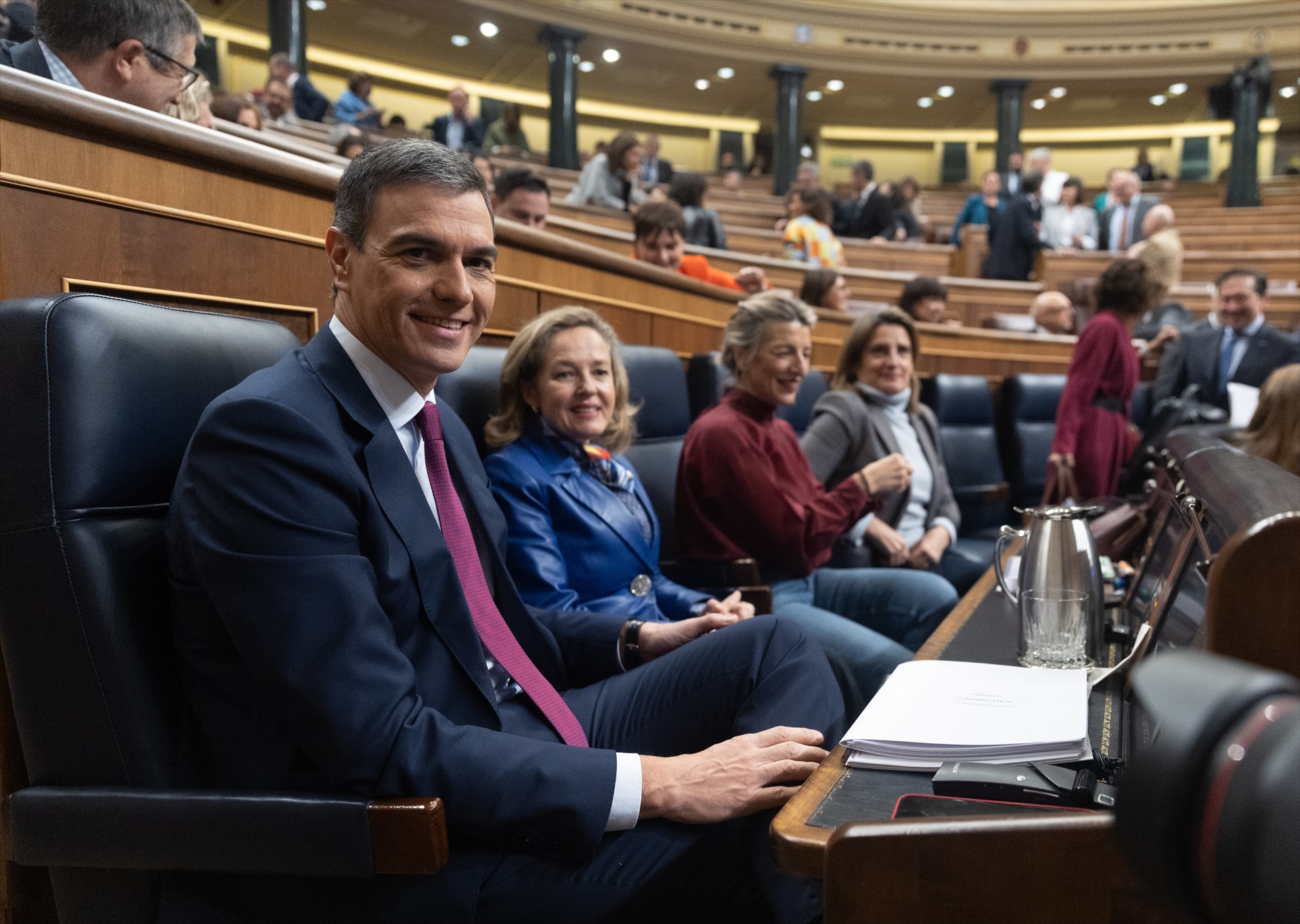Pedro Sánchez has postulated this Monday that one way to convince Together for Catalonia (Junts) to reach a definitive agreement over the Catalan amnesty law, after that party's recent rejection of the bill in its parliamentary processing, could be to reform the Criminal Procedure Law, in order to reduce investigation processes for cases where the intention is to trap pro-independence figures. The Spanish prime minister recalled that in recent days there have been "investigations that have stretched out over time" and that "prosecutors have raised questions" about this, referring to the investigations conducted by judges Manuel García-Castellón and Joaquín Aguirre. The Socialist leader asserted that "there are elements we can incorporate that can resolve some of the doubts of some parties", such as the one led in Madrid by Míriam Nogueras. He noted, in conclusion, that a reform of this type aligns "perfectly" with the Law on Efficiency of Justice passed a few weeks ago in the Congress of Deputies. At present, there are two categories of cases: the 'normal' ones, which have an investigative period of a year; and the 'extensions', which can be extended for periods equal to or less than six months for as long as judges wants, as long as they make arguments to do so in their resolutions.
However, this is not what Junts are asking for. The pro-independence party wants the exceptions for crimes of terrorism and treason to be removed from the amnesty law text. But this Monday, Pedro Sánchez ruled out this possibility. In an interview with TV network LaSexta, he rejected further changes to the bill, because he argues that the current wording is already good enough: "It is a good text, restorative, constitutional and aligned with European law". As well, he ruled out a reform of the definition of the crime of terrorism in the Spanish Penal Code.
It is Pedro Sánchez's second gesture towards Junts since Carles Puigdemont's party decided to halt the amnesty law in its approval process before it leaves the Congress of Deputies. Last Thursday, the Spanish PM made it very clear that the Catalan independence movement has never been terrorist. Jordi Turull gave a "positive assessment" of the Socialist leader's statements. This Monday, Sánchez reiterated this idea, and showed his conviction that, despite his insistence on the independence of the judiciary, the judges will end up amnestying those charged in any pro-independence case.
Door closed on a referendum
At the same time, Sánchez has ssured that he will never grant a referendum on self-determination to the pro-independence parties. He argued that this concession would be contrary to his policy to resolve the political conflict between Catalonia and Spain, as, for him, a consultation of this type would involve polarizing Catalan society. He affirmed that pardons, as well as amnesty, serve to defuse the conflict. "Constitutionally, it is impossible and would go against coexistence", he argued.

